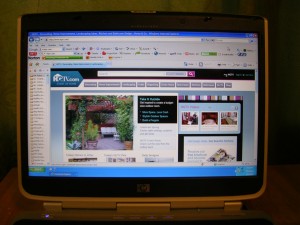

April 9th, 2009 categories: Ballard, Belltown, Fremont, Georgetown, HGTV, Home Buyers, Transitional Areas, Waterfront

HGTV.com
Sunday night HGTV ran a special based on their “House Hunter ” TV series which now has over 600 episodes, called “House Hunter’s Guide to the Top 25 Most Important Things Every Potential Home Buyer Should Know “. So I thought I would watch and pass along my top 10 picks from the 25 for you, and add my thoughts as well.
There were a lot of good, common sense suggestions in HGTV’s tips, though I thought there were too many to try and stretch out the tips to 25, and fill an hour long program. Space, and the *yawn* factor to include all 25 of the tips is going to limit me to posting just my Top 10 picks from the 25. If you would like to see all 25, just drop me an email an I will send them along to you since HGTV does not have them listed on their site.
So here you are with my Top 10 picks of Important Things Every Seattle Home Buyer Should Know (plus a “Bonus Tip”) from HGTV’s Top 25 Tips, my comments are in italics:
#25 Know what you want and need: Make a list of you would LIKE and what you need. Needs and wants are different! Wants are extras.
#24 Be ready to compromise – you won’t be able to afford everything you want. Your next “Move Up” home will very likely be closer to having more of what you would like. The current one will help you leverage into your next home in 5 or more years depending on the market and if you add value to the home with improvements.
#23 Factor in all the costs of your purchase
Bonus Tip:
#22 Buy in Winter – There is more inventory in Spring, but better deals in the Winter. This is sooo true!
#21 Check out the neighborhood – be sure you do your homework to find out important things about the neighborhood, like the schools (how good they are) possible development, or construction that could block a view etc. There are lots of great online resources to help with this, but don’t forget the importance of walking the neighborhood in the evening and weekend, and chatting with the neighbors.
#20 Consider transitional areas – follow the Artists! Artists need cheap space, they move in, then others follow. This is especially true in Seattle, with older artist areas of Belltown, Ballard, Fremont, Georgetown and we all know how those areas had been going up in value and desirability.
#18 Understand Land value – that is the price of the land minus the structure = land value Ex: waterfront property, there is only so much available so that value holds better. While Seattle does have lots, and lots of waterfront because of the Sound, the lakes, and canal, it is very desirable, and will always be very desirable…because there is still LESS of it. Same goes for water views, just less expensive than waterfront.
#8 Buy the house not the furniture – be sure look past both the bad (dirty homes and dated furnishings) and the good (staged homes) to see the true value for you. YES! You will likely get a better deal if you can look past the wear and tear, and dated things because many buyers will pass on those homes putting downward pressure on the home’s value. The same works in reverse, that is why staging is a valuable selling tool. Be smart, it’s all about the value of what STAYS with the house.
#5 Buy the worst house in the best area – a great way to buy an affordable home in a great area. Remember, that it can be time consuming and more costly than you originally thought to fix up. If you are trying to get more for your money location wise, then this is very important. Remember: Location, location, location! This also works in reverse when you buy the BEST home in an area, the other homes pull down the value.
#4 Know a cosmetic fixer from a “gut job” – BIG difference in the amount of time and money to fix up. Identifying “good bones” in a property that can be improved. Painting, changing flooring, plumbing fixtures, lighting fixtures, window coverings, appliances etc. all qualify as cosmetic. Floor plan changes (to correct bad flow, or open up house) additions, replacing systems such as electrical, plumbing, heating, foundations, roofs etc. start moving into the “gut job” area, and can really add to costs.
#1 Follow your instincts – choosing your home should be equal parts intellectual and emotional. One home buyer told her agent that “buying a home was like buying a wedding dress”. A real estate agent should help you with the intellectual part, but only you can decide on the emotional side. Yes, you will know when houses seem like the right one, and your Seattle real estate agent should be there to think about the practical aspects of whether the house has the value that works for You.
Last thing, HGTV says that home buyers see an average of 9 homes before finding the one they purchase….
There You have it…. Happy House Hunting!
| Discussion: 1,629 Comments »
12207 NE 8th Street
Bellevue,WA 98005
CELL: 206-618-0565
Email me